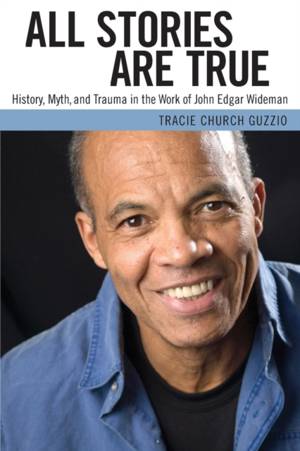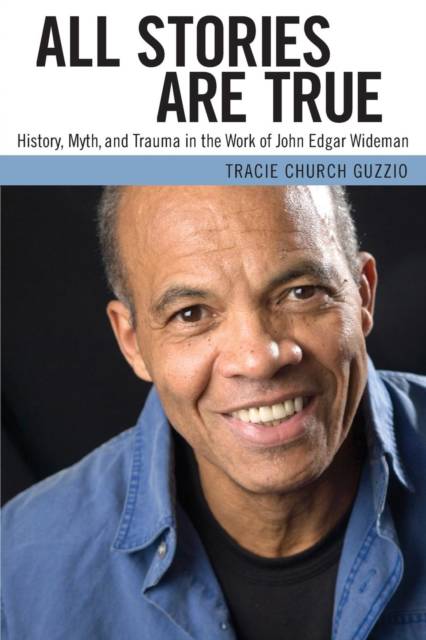
- Afhalen na 1 uur in een winkel met voorraad
- Gratis thuislevering in België vanaf € 30
- Ruim aanbod met 7 miljoen producten
- Afhalen na 1 uur in een winkel met voorraad
- Gratis thuislevering in België vanaf € 30
- Ruim aanbod met 7 miljoen producten
Zoeken
All Stories Are True
History, Myth, and Trauma in the Work of John Edgar Wideman
Tracie Church Guzzio
€ 59,45
+ 118 punten
Uitvoering
Omschrijving
A mapping of the whole Wideman universe from novels to short stories to nonfiction In All Stories Are True, Tracie Church Guzzio provides the first full-length study of John Edgar Wideman's entire oeuvre to date. Specifically, Guzzio examines the ways in which Wideman (b. 1941) engages with three crucial themes--history, myth, and trauma--throughout his career, showing how they intertwine. Guzzio argues that, for four decades, the influential African American writer has endeavored to create a version of the African American experience that runs counter to mainstream interpretations, using history and myth to confront and then heal the trauma caused by slavery and racism. Wideman's work intentionally blurs boundaries between fiction and autobiography, myth and history, particularly as that history relates to African American experience in his hometown of Pittsburgh, Pennsylvania. The fusion of fiction, national history, and Wideman's personal life is characteristic of his style, which--due to its complexity and smudging of genre distinctions--has presented analytic difficulties for literary scholars. Despite winning the PEN/Faulkner award twice, for Sent for You Yesterday (1984) and Philadelphia Fire (1990), Wideman remains understudied. Of particular value is Guzzio's analysis of the many ways in which Wideman alludes to his previous works. This intertextuality allows Wideman to engage his books in direct, intentional dialogue with each other through repeated characters, images, folktales, and songs. In Wideman's challenging of a monolithic view of history and presenting alternative perspectives to it, and his allowing past, present, and future time to remain fluid in the narratives, Guzzio finds an author firm in his notion that all stories and all perspectives have merit. Tracie Church Guzzio, Plattsburgh, New York, is associate professor of English at State University of New York, Plattsburgh. Her work has appeared in such edited anthologies as American Writers, Contemporary African American Novelists, and The Reader's Companion to the American Short Story.
Specificaties
Betrokkenen
- Auteur(s):
- Uitgeverij:
Inhoud
- Aantal bladzijden:
- 332
- Taal:
- Engels
- Reeks:
Eigenschappen
- Productcode (EAN):
- 9781617038334
- Verschijningsdatum:
- 7/03/2013
- Uitvoering:
- Paperback
- Formaat:
- Trade paperback (VS)
- Afmetingen:
- 156 mm x 234 mm
- Gewicht:
- 512 g

Alleen bij Standaard Boekhandel
+ 118 punten op je klantenkaart van Standaard Boekhandel
Beoordelingen
We publiceren alleen reviews die voldoen aan de voorwaarden voor reviews. Bekijk onze voorwaarden voor reviews.








